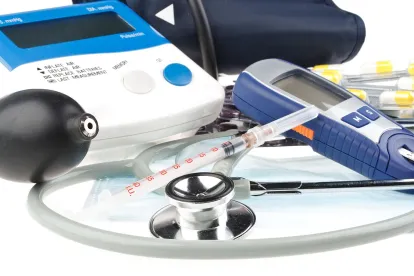On November 16, 2021, U.S. House Representatives Diana DeGette (D-CO) and Fred Upton (R-MI) introduced the highly anticipated Cures 2.0 Act (H.R. 6000). Among other things, this 173-page bipartisan bill contain provisions to accelerate medical research, increase patient access to novel therapeutics, and remove current barriers to telehealth services.
This bill would also create a new agency called Advanced Research Projects Agency for Health (ARPA-H) within the National Institutes of Health (NIH). This agency would be tasked with developing novel treatments to challenging diseases such as cancer, diabetes, ALS, and Alzheimer’s. In a press release, DeGette and Upton said, “By creating ARPA-H, we will be bringing together some of our nation’s greatest minds to help find cures to these devastating diseases. And we will – for the first time – be putting the full weight of the federal government behind the ongoing efforts to end these terrible illnesses as we know them – which is a mission that all of us should be able to get behind.” The bill would provide $6.5 billion to ARPA-H through its first three years.
The Cures 2.0 bill contains numerous provisions that would impact the U.S. Food and Drug Administration (FDA).
FDA would have to:
-
establish at least two additional intercenter institutes;
-
provide grants for novel trial designs and other innovations in drug development;
-
submit a report to Congress with respect to cell and gene therapies; and
-
issue guidance on the use of real-world evidence in evaluating the safety and effectiveness of breakthrough devices and on the development and submission of chemistry, manufacturing, and controls information for products subject to one of FDA’s expedited regulatory pathways.
Additionally, the bill would accelerate the timeline for the designations of FDA’s breakthrough therapies and regenerative medicine advanced therapy (RMAT) therapies, allowing sponsors to request designations before or after a new drug application (NDA) or biologics license application (BLA) is submitted. Under the Cures 2.0 Act, FDA would also be required to meet with sponsors, device manufacturers, clinical research organizations, the technology community, and the patient community to discuss innovative approaches and incentives to adopt decentralized clinical trials.
Other provisions of this bill include reforms to Medicare reimbursement and coverage such as removing the condition that requires a patient to live in a rural area and to be in a physician’s office in order to qualify for telehealth services. The Centers for Medicare and Medicaid Services (CMS) would be able to grant greater flexibilities for healthcare providers to receive reimbursement from Medicare for telehealth services. Another key provision of this bill would allow CMS to temporarily cover products approved or cleared by the FDA under the breakthrough therapy pathway for up to four years. Recently, CMS issued a final rule that rescinded expedited Medicare coverage of breakthrough devices for up to four years once the product had been approved or cleared by the FDA. Additionally, this bill would require the Government Accountability Office to submit a report to Congress on recommendations to enhance Medicare coverage and reimbursement of innovative health technologies.
The provisions of the Cures 2.0 Act have the potential to significantly impact public health. By facilitating the investigation and development of novel therapies, we can expect that breakthroughs will result in the treatment of serious and debilitating diseases. Patients living in rural areas will be afforded greater access to healthcare through telehealth services. Finally, patients will get increased access to products that have received breakthrough designation as CMS can provide reimbursement for these life-saving products.
While Representatives DeGette and Upton had hoped to introduce the Cures 2.0 legislation earlier this year, it was stalled due to competing demands. At this point it is highly unlikely the legislation will be considered before Congress adjourns this year. However, it is expected to be a legislative priority in 2022, given the broad bipartisan support the first Cures bill enjoyed. We will continue to monitor the progress of the Cures 2.0 Act as it moves through Congress.






 />i
/>i

